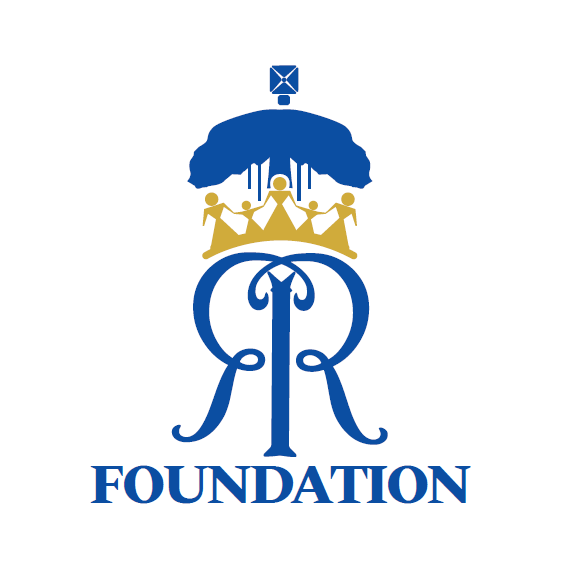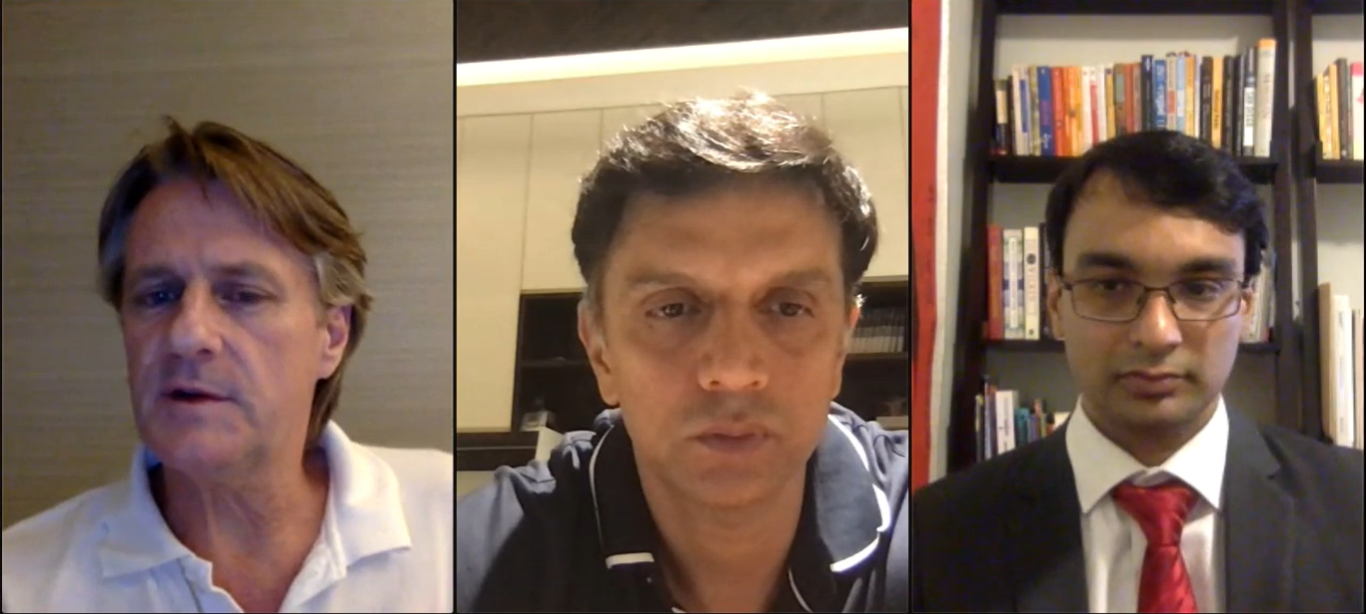The social impact arm of Rajasthan Royals, Royal Rajasthan Foundation, has teamed up with its legendary former cricketer Rahul Dravid, McLean Hospital (an affiliate of Harvard Medical School) and Dr N S Vahia Foundation to work on removing the stigma around mental health, and is raising awareness about the impact mental illness can have. In a three-part series on mental health and well-being, The Royal Conversations—Mind, Body and Soul, began on 27 May as a weekly webinar.
The first session saw cricket legend Rahul Dravid join Rajasthan Royals’ Head Physiotherapist John Gloster, Dr Ipsit Vahia and Dr Lisa Coyne, in a freewheeling conversation about mental health and how it correlates to future success.
The World Health Organization accounts mental illnesses for 30 per cent of all non-fatal diseases, approximately 10 per cent of the overall global diseases. In India, approximately 7.5 per cent of the population suffers from some form of mental disorder, while the people who are able to receive treatment hovers around the 70 per cent mark.
The importance of mental illnesses in these times has been brought to the forefront with many across the country facing issues and challenges in the current lockdown.
It helps when role models open up
Stressing upon how mental disorder is a common phenomenon, Dr Coyne pointed out that adolescence is the starting point. “The WHO estimates that one in four individuals in the course of their lifetime will experience a meaningful mental health disorder. This is not rare… So if you’re in a position to identify struggling mental health conditions in young athletes, it’s really important to intervene. There is so much stigma around mental health that it is important for athletes to speak out about their struggles for kids to learn.”
Lauding Dravid’s efforts she added what an “incredible role model” he is for young athletes and that this would put them in a position to address mental health issues at the outset. The former India and RR captain also applauded modern-day players who have opened up about mental health. “It’s good to see many players having the courage to talk about these issues. Sport, and cricket, can be tough and it is a high-pressure environment out there, and some of these players are constantly in that high-pressure environment. In the past, there has probably been a sort of stigma associated with talking about your frailties, admitting that you have a problem. In the olden days, maybe, people didn’t know how to react to it but with players coming out now there is more positive discussion around mental health in sport, especially cricket.”
The stress of living in a changing world
The pandemic induced lockdown seems to have taken its own mental health toll too. Dr Vahia spoke of how our lives have changed. “The old greeting ‘How are you?’ has changed. It used to be a ceremonial greeting but now it’s different as no one is as okay as they used to be. However, acknowledging that is important. I don’t think we’ve dealt with something quite like this before and, to be honest, we don’t know what it’s going to be like in the future. We’ve had events previously like wars which have impacted us but none quite like this, which has impacted everyone. There has been the illness and then the economic factors.”
“In situations like this,” he suggested, “it’s important to realise that there may not be much we can control and it is very difficult to predict the future. The healthiest thing we can do is to stay in the here for now and not fall into the trap of looking at things as to how they were and importantly not worrying about what I’m doing to do in months or years from now. Probably getting a bit of exercise every day or taking care of what we’re eating, staying connected and putting in the effort to fight is what we need.”
Engaging in a variety of activities is key
Sharing an example from his life, Dravid said, “There were many periods in my career that were mentally challenging. I debuted at the age of 17, and it took me about five years of first-class cricket to make it to the Indian team. It was a really challenging period because you sort of have your entire life in front of you and you’re committing to a very risky profession of being a cricketer. If you don’t succeed professionally or don’t play long enough for India at least at that point of time it wasn’t a very lucrative way to make a living. You just had to be successful to make a decent living. At the same time, you’re at the university and are grappling with those decisions to play professional sport, which requires a lot of hard work and sacrifice to succeed… it’s not easy. For me, that was mentally a very difficult period of making those decisions. I did go to University and complete my education and I think doing that and having something other than cricket to do at that point really helped.”
Dr Vahia said that the perceptive increase in empathy among people is heartening too. Dravid agreed that today there are professionals available for sportspersons compared to what it used to be in his playing days. “Now we’re seeing more focus on the mental well-being of players. Not related to whether they can bat well or bowl well but just for their mental well-being. What we’re seeing now is more interest around mental well-being of people, not necessarily on field but also off the field. That, in turn, helps you perform better on the field.”
Look out for more from the series. The next session is on 3 June with Royals’ batsman Robin Uthappa in conversation with medical experts and Gloster and the concluding episode is on 10 June with Royals’ Indian pacer Varun Aaron.


